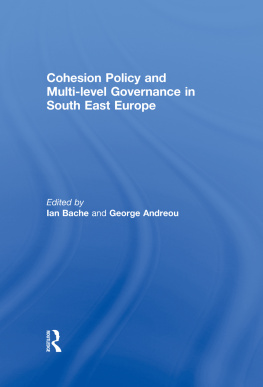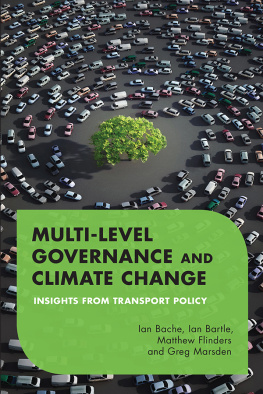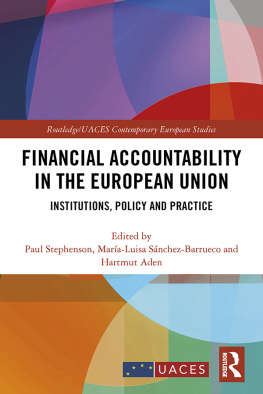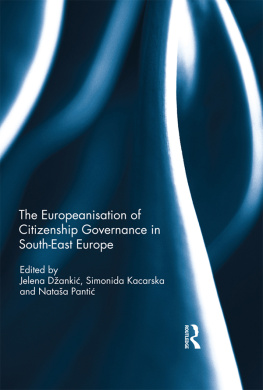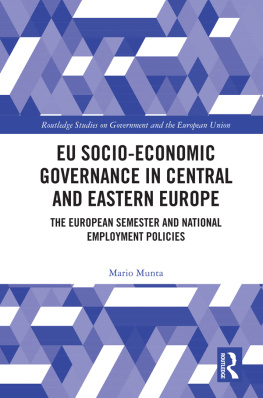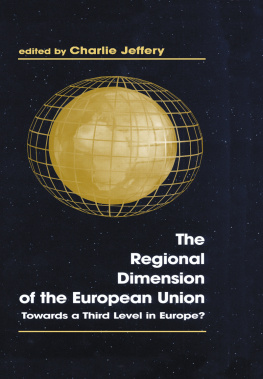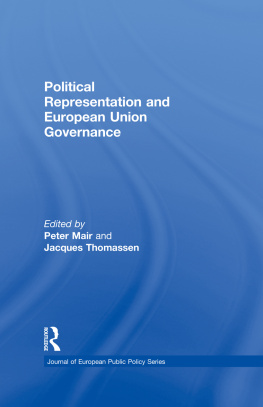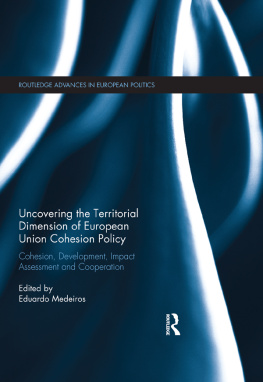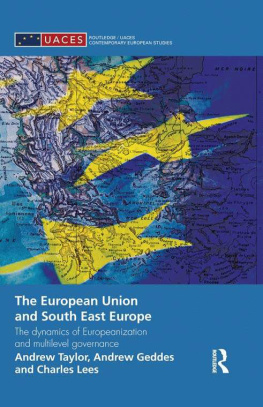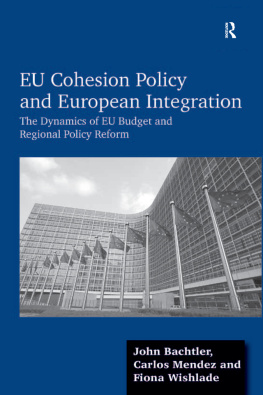Cohesion Policy and Multi-level Governance in South East Europe
This book considers the extent to which EU cohesion policy and related pre-accession instruments are contributing to the development of more compound polities in south east Europe and, specifically, promoting multi-level governance. In this respect, there are two points of departure: the first is the argument that the EU is a highly compound polity that tends to pull member (and candidate) states in this direction; the second is the considerable literature that links EU cohesion policy to the promotion of multilevel governance. Following this, we have chosen a range of south east European states whose period of engagement with the EU generally differs: Greece, Slovenia, Bulgaria, Romania, Croatia, F.Y.R. Macedonia and Turkey. The case studies reveal that EU cohesion policy has created more compound polities but that system-wide multi-level governance remains weak and central governments are still prominent. However, there are interesting and potentially important developments in relation to particular features of multi-level governance, not least in states whose engagement with the EU in this sphere is relatively new.
This book was published as a special issue of Southeast European and Black Sea Studies.
Ian Bache is Professor of Politics at the University of Sheffield. His books include Europeanization and Multi-level Governance: Cohesion Policy in the European Union and Britain (2008), Politics in the European Union (2006, with Stephen George), The Europeanization of British Politics (2006, with Andrew Jordan) and Multi-level Governance (2004, with Matthew Flinders).
George Andreou is elected Lecturer at the Aristotle University of Thessaloniki. He has published the book The New Cohesion Policy of the EU and Greece (in Greek) (2007, with P. Liargovas).
Cohesion Policy and Multi-level Governance in South East Europe
Edited by
Ian Bache and George Andreou
First published 2011
by Routledge
2 Park Square, Milton Park, Abingdon, Oxon, OX14 4RN
Simultaneously published in the USA and Canada
by Routledge
270 Madison Avenue, New York, NY 10016
Routledge is an imprint of the Taylor & Francis Group, an informa business
2011 Taylor & Francis
This book is a reproduction of Southeast Europe and Black Sea Studies, vol.10, issue 1. The Publisher requests to those authors who may be citing this book to state, also, the bibliographical details of the special issue on which the book was based.
Typeset in Times by Taylor & Francis Books
Printed and bound in Great Britain by MPG Books Group, UK
All rights reserved. No part of this book may be reprinted or reproduced or utilised in any form or by any electronic, mechanical, or other means, now known or hereafter invented, including photocopying and recording, or in any information storage or retrieval system, without permission in writing from the publishers.
British Library Cataloguing in Publication Data
A catalogue record for this book is available from the British Library
ISBN13: 978-0-415-59419-6
Disclaimer
The publisher would like to make readers aware that the chapters in this book are referred to as articles as they had been in the special issue. The publisher accepts responsibility for any inconsistencies that may have arisen in the course of preparing this volume for print.
Contents
Ian Bache
George Andreou
George Andreou and Ian Bache
Alexander Yanakiev
Ana Maria Dobre
Ian Bache and Danijel Tomi
Gorica Atanasova and Ian Bache
Ebru Ertugal
Ian Bache
Ian Bache
Department of Politics, University of Sheffield, Sheffield, UK
This opening contribution provides the framework for discussion for the case studies that follow. It outlines the key concepts employed simple and compound polities, Europeanization and multi-level governance and explains the origins and development of EU cohesion policy and related pre-accession instruments. It concludes by summarizing the main themes and issues addressed in the subsequent contributions.
Introduction
This volume considers the extent to which EU cohesion policy and related pre-accession instruments are contributing to the development of more compound polities in Southeast Europe and, specifically, promoting multi-level governance. In light of previous research (below), we anticipate variations in the nature and extent of EU pressures and incentives over time both across and even within states. Following this, we have chosen for this study a range of Southeast European states whose period of engagement with the EU generally differs: Greece (George Andreou) has been a member of the EU throughout the period under observation (19892008); Slovenia (George Andreou and Ian Bache) joined as part of the 2004 enlargement; Bulgaria (Alexander Yanakiev) and Romania (Ana Maria Dobre) acceded to the EU in 2007; Croatia (Ian Bache and Danijel Tomi) is expected to join in the near future; and F.Y.R. Macedonia (Gorica Atanasova and Ian Bache) and Turkey (Ebru Ertugal) have a longer-term prospect of membership. In Schmidts (2006) terms, each of these countries would be characterized as a simple polity and, as such, particularly susceptible to pressure for change through engaging with the highly compound EU polity. We begin the discussion by explaining the conceptual themes employed throughout the volume.
Conceptual themes
The simplecompound polity distinction and multi-level governance
In essence, simple polities are characterized by power and influence being concentrated in a single level and mode of governance, whereas compound polities are characterized by multiple levels and modes of governance. More specifically, the term simple polity refers to a state with a combination of a majoritarian system of representation, statist policy-making processes and a unitary state structure. The term compound polity refers to a state with a combination of a proportional representation system, corporatist policy-making processes and regionalized or federalized structures (Schmidt 2006, 227).
Using these categories, the EU is defined as a highly compound regional polity, which places it at the extreme end of the continuum that includes its member states and one that tends to pull all member states irrespective of their place on the continuum in this direction. However, the pressure on states furthest away from the EU on this continuum is likely to be comparatively greater:
The EUs federalizing effects undermine the traditional concentration of power of the unitary structures of simple polities while it challenges organizing principles which assume that democracy is better served by the concentration of governmental power and authority, such that the government has the sole responsibility as well as the capacity to respond to citizens wants and needs effectively for the people. (Schmidt 2006, 34)
In a similar way, while the EU tends to pluralize all member states policy-making processes by promoting the role of organized interests in policy-making, it is seen to have had a greater impact in those states where interests tend to have been relatively excluded (Schmidt 2006, 345).
Schmidts emphasis on the federalizing (also regionalizing elsewhere in her discussion) and pluralizing effects relates directly to the notion of multi-level governance, which refers to increasingly complex vertical relations between actors organized at various territorial levels and horizontal relations between actors from public, private and voluntary spheres. It is a process of change characterized by the emergence of territorially overarching policy networks (Marks 1993, 4023) and one that challenges the role, power and authority of national governments. Moreover, referring to specific types of multi-level governance developed in the literature refines our focus here. Type I multi-level governance describes system-wide governing arrangements in which the dispersion of authority is restricted to a limited number of clearly defined, non-overlapping jurisdictions at a limited number of territorial levels, each of which has responsibility for a bundle of functions. By contrast, Type II multi-level governance describes governing arrangements in which the jurisdiction of authority is task-specific, where jurisdictions operate at numerous territorial levels and may be overlapping (Marks and Hooghe 2004). In Type I, authority is relatively stable, but in Type II it is more flexible to deal with the changing demands of governance (Table 1). Type I and Type II multi-level governance typically co-exist in modern polities.

